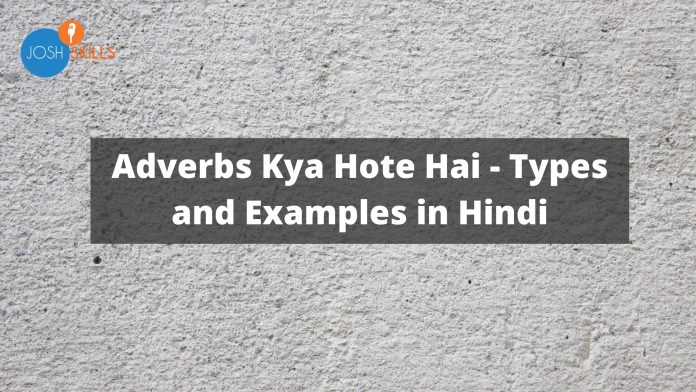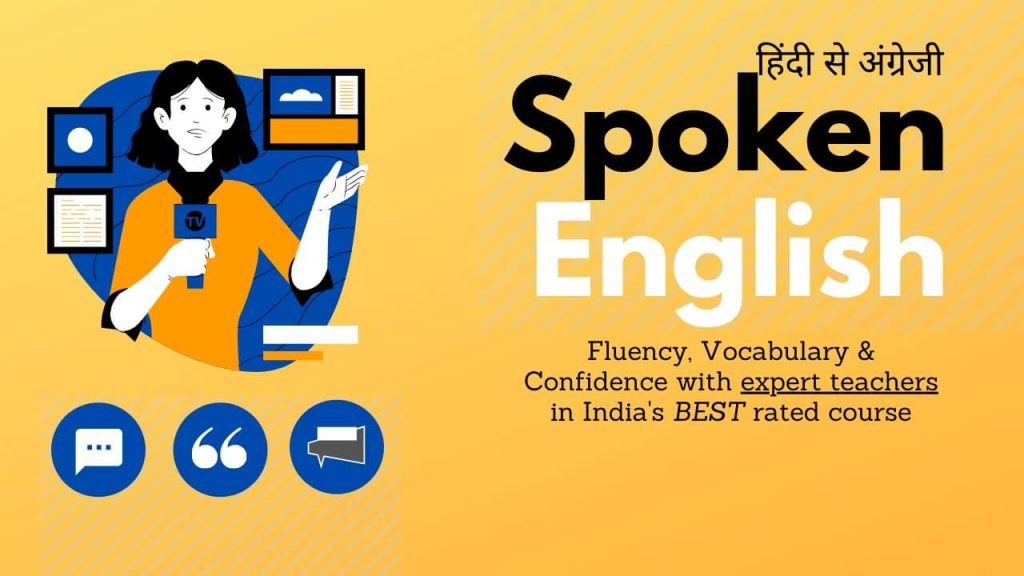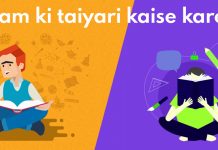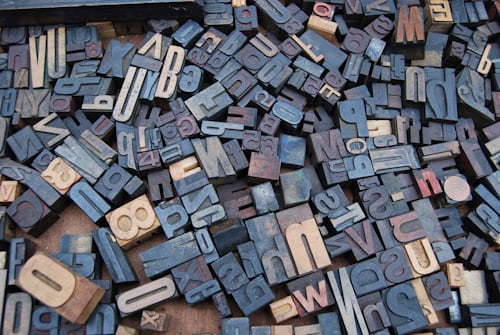
Adverbs ka hindi meaning hota hai Kriya-Visheshan. Iss article me hum dekhenge ki Adverbs/Kriya-Visheshan kya hote hai, unki definition aur examples, unke types and unhe kaha aur kese use karna chahiye.
Adverbs kise kehte hai – Definition of Adverbs
Adverbs kya hote hai aur iska use kaise karte hai iska explanation apko iss section me mil jaega. Iska use bhi vishesh batane ke liye kiya jaata hai. Adverbs Grammar ka ek bohot hi important part hota hai
Adverbs wo words hai jo kisi Verb(Kriya), Adjective(Visheshan), ya adverb(Kriya-Visheshan) ki visheshta batate hai. Adverbs Qualify karta hai verb, adjective ya kisi aur adverb ko.
Examples: Fast, slow, very, loudly, badly, fluently, twice, yesterday.
She walks slowly.
He is very smart.
Those kids are badly influenced.
I come here twice a day.
Simran speaks french fluently.
Iss sentence me walk karna ek verb hogya hai aur slowly uss verb ko aur describe kar raha hai matlab uski visheshta bata raha hai, isliye slowly ek adverb hogya.
Bina adverb ke upar wala sentence bahut hi ambiguous hojata aur clarity nahi milti ki walk se related, isilye adverbs ka use karna zaroori hai.
Try 4 Skills se improve kare apne English.
Josh Skills App par Sikhe Fluent English Bolna
Adverbs kitne type ke hote hai or Unke examples
Ab hume pata hai Adverbs/Kriya-Visheshan kya hote hai. Ab hum Adverbs ke types ke baare me padhenge.
Adverbs ke bahut saare type hai but broadly inko 8 categories me divide kiya gaya hai. Inn sab ke baare me iss section me explain kiya hai examples ke saath. Iske baad apko aur ache se samajh aayega ki Adverbs kya hote hai or unke use se kya hota hai.
Adverb of Time – Kaal Vachak Kriya-Visheshan
Adverb of time wo type ke adverbs hote hai jisse verb/kriya ke time ka knowledge milta hai. Yeh show karta hai kisi action ka time.
Examples:
Today, Last year, Soon, Ago, Late, Last month, Now, etc.
Sentences me isko identify karne ke liye agar “when” use karke question puchte hai to hume answer me adverb milta hai.
Usage:
I pray daily.
Question: When do I pray ?
Answer: Daily.
Other examples:
Today is my birthday.
Last year I went to Kerala.
I’ll be reaching late.
She’ll be leaving soon.
A long ago, I was fat.
Adverbs of Frequency – Aavrutti vachak Kriya-Visheshan
Adverbs of Frequency wo type ke adverbs hote hai jo verb ki frequency ko batate hai matlab wo kitni baar hua hai yeh convey karte hai.
Example: Once, Twice, Thrice, Rarely, Often, Again, Never,etc.
Sentences me isko identify karne karne ke liye verb ke sath “How many times” use karke question puchege to answer jo milega wo adverb of frequency hoga.
Usage:
Rahul comes here twice a day.
Question: How many times Rahul comes here in a day ?
Answer: Twice.
Other Examples:
I went there once.
Brush your teeth twice a day.
I’ll come again.
She cries rarely.
He will never agree to this.
Adverbs of Manner – Reeti Vachak Kriya-Visheshan
Adverbs of manner wo type ke adverbs hote hai jo specify karte hai ki verb ya action kis type se complete ho raha hai.
Examples: Slowly, Bravely, Carefully, Badly, Fast, Hard, etc.
Sentences me isko identify karne karne ke liye verb ke sath “How“ use karke question puchege to answer jo milega wo adverb of Manner hoga.
Usage:
Simran is brave.
Question: How is Simran ?
Answer: Brave.
Other Examples:
Turtles walk slowly.
He acted bravely.
You should be doing this carefully.
This is a hard task.
We are impacted badly.
Adverbs Of Place – Sthan vachak Kriya-Visheshan
Adverbs of place wo type ke adverbs hote hai jisse verb ya action ke place ka pata chalta hai.
Examples: Here, There, Near, below, indoors, outdoors, up, down, etc.
Usage: Sit Outside.
Question: Sit where ?
Answer: Outside.
Other Examples:
Here is the way.
There is nobody.
There’s a cafe near the corner.
Look at the cat below the table.
We should play outdoor games.
Sentences me isko identify karne karne ke liye verb ke sath “Where“ use karke question puchege to answer jo milega wo adverb of Place hoga.
Adverbs of Degree – Pariman Vachak Kriya-Visheshan
Adverbs of degree wo type ke adverbs hote hai jo intensity batate hai adjective, action ya adverb ki.
Examples: Very, Too, Much, Exactly, Almost, Hardly, etc.
Usage: Simran is very happy.
Question: How much simran is happy ?
Answer: Very.
Other Examples:
She is very happy.
He is exactly like his brother.
We almost fell off the road.
She hardly listens to music.
He lives too far.
Sentences me isko identify karne karne ke liye verb ke sath “How much“ use karke question puchege to answer jo milega wo adverb of degree hoga.
Adverb of Negation and Affirmation – Nakaratmak ya Sweekaratmak Kriya-Visheshan
Adverbs of negation and affirmation wo type ke adverbs hote hai jo sentence ko true statement ya negative statement declare karte hai.
Examples: (Yes, surely, Definitely, Absolutely,etc.) – Affirmative words
(No, Not, Never, etc.) – Negative words
Usage:
You are surely mistaken.
I am not coming.
He is certainly wrong.
I am definitely going to school.
He’ll never accept the offer.
Interrogative Adverbs – Prashna Vachak Kriya-Visheshan
Interrogative adverbs wo type ke adverbs hote hai jo questions puchne ke kaam aate hai.
Examples: How, When, Where, How much, How long, How many, etc.
Usage:
How are you?
Where is Kundan?
How much money do you have?
When did she get up?
How long does it take to complete one assignment?
Relative Adverbs – Sambandh Vachak Kriya-Visheshan
Relative adverbs wo type ke adverbs hote hai jo two sentence ko saath me jon karne ke liye use hote hai.
Examples: Why, Where, When, etc.
Usage:
This is the house where he lived.
I know the time when he came.
This is the college where my friend had studied.
Interrogative adverbs aur Relative adverbs ek jaise hi hote hai bas difference yeh hota hai ki interrogative adverbs ka use questions puchne me kiya jaata hai aur relative adverbs ka use sentences ko join karne me kiya jaata hai.
Adverbs Exercise
Neeche diye gaye blanks ko suitable option se fill karna hai. Isse aap ko aur ache se samajh aayega ki Adverbs ya Kriya- Visheshan Kya hote hai.
Q 1 – She likes to cook for her children ____, even if she doesn’t get many opportunities.
A – sometimes
B – Never
C – Usually
D – always
Q 2 – We must brush our teeth ____ to keep them bright.
A – sometimes
B – everyday
C – No day
D – Never
Q 3 – Find the correct form of the word to use in the sentence −
You can open this tin ___.
A – Ease
B – Easier
C – Easily
D – Easy
Q 4 – Find the correct form of the word to use in the sentence −
It’s raining ___ today.
A – Terribly
B – Terrible
C – More terrible
D – Most terrible
Q 5 – Find the correct form of the word to use in the sentence −
The possum was ___ injured.
A – Serious
B – Seriously
C – Seriouser
D – Most serious
Q 6 – Find the correct form of the word to use in the sentence −
He talks so ___ that it’s impossible to make out what he is saying.
A – Fast
B – Fastly
C – Faster
D – Fastest
Q 7 – Find the correct form of the word to use in the sentence −
She was ___ to take the decision. She adapted ___ to any change.
A – Quickly, quickly
B – Quick, quick
C – Quick, quickly
D – Quickly, quick
Q 8 – Find the correct form of the word to use in the sentence −
Talk ___ now. The music is ___ so people will be disturbed.
A – Softly, softly
B – Soft, soft
C – Softly, soft
D – Soft, softly
Q 9 – Find the correct form of the word to use in the sentence −
We make our deliveries on ___ We are known for our ___ deliveries.
A – Timely, time
B – Time, time
C – Timely, timely
D – Time, timely
Q 10 – Select the Correct Statements −
A – Come quick or else the train will start rolling.
B – Come quicker or else the train will start rolling.
C – Come quickest or the train will start rolling.
D – Come quickly or the train will start rolling.
Neeche diye gaye answers ko dekhne se pehle attempt karke dekhe quiz, jisse apko ache se samajh aayega ki Adverbs kya hote hai or unka use kaise karte hai.
Answers
1 – Answer : A
Explanation: Kabhi kabhi adverbs baar – baar hone wale actions mention karne ke liye bhi use kiye jaate hai.
2 – Answer : B
Explanation: Always ek adverb hai jo uss action ko mention kar raha hai jo humesha hoti hai.
3 – Answer : C
Explanation: Yaha adverb modify kar raha hai action ko.
4 – Answer : A
Explanation: Yaha adverb modify kar raha hai action ko.
5 – Answer : B
Explanation: Yaha adverb modify kar raha hai action ko.
6 – Answer : A
Explanation: Yaha adverb modify kar raha hai action ko.
7 – Answer : C
Explanation: Dono adverbs hai but unka use alag alag hai.
8 – Answer : C
Explanation: Yaha 1st word adverb hai kyuki vo modify kar raha hai action ko aur 2nd word adjective hai kyuki vo describe kar raha hai noun ko.
9 – Answer : D
Explanation: 1st word ek noun hai; 2nd word adjective hai jo describe kar raha hai noun ko.
10 – Answer : D
Explanation: Yaha adverb modify kar raha hai action ko.
Some commonly used Adverbs
Neeche adverbs, unke meaning or examples mentioned hai jisse aapko samajh aayega ki adverbs kya hote hai, or yeh kya impact daalte hai sentences par.
Positive Adverbs
| Adverb | Meaning | Example |
| Boldly | saahasapoorvak | you will have our support as long as you fight boldly against corruption |
| Cheerfully | Hasi-khushi | he was whistling cheerfully |
| Eagerly | Besabree se | fans of the show are eagerly awaiting the new season |
| Faithfully | imaandaari | he swore that he would serve the king faithfully |
| Honestly | Imaandari se | he’d come by the money honestly |
| Innocently | Masoon | the lawyer says that his client was acting innocently |
| Kindly | Kripaya | ‘Never mind,’ she said kindly |
| Politely | shishta poorvak | he waited politely for me to ask questions |
| Safely | Surakshit roop se | all of us have a responsibility to drive safely |
| Warmly | Dil se | the sun shone warmly |
Negative Adverbs
| Adverb | Meaning | Example |
| Angrily | Ghusse se | workers reacted angrily to the announcement |
| Anxiously | Udveg se | we are all waiting anxiously for any news |
| Badly | Buri tarah | England have played badly this year |
| Foolishly | Moorkhata se | they were condemned for acting foolishly |
| Hopelessly | Buree | she sighed hopelessly |
| Jealously | Irshiya ke saath | she stared jealously at his phone |
| Lazily | Aalsi | they are lounging lazily |
| Poorly | Beemar | schools were performing poorly |
| Rudely | Berukhi | he rudely snatched the water pitcher |
| Selfishly | svaarthapoorn | they continue to act selfishly at the expense of others |
Time Related Adverbs
| Adverb | Meaning | Example |
| Always | Humesha | the sun always rises in the east |
| Eventually | End me | eventually, after midnight, I arrived at the hotel |
| Finally | Akhir kar | he finally arrived to join us |
| Frequently | Baar Baar | they go abroad frequently |
| Hourly | Per hour | there is an hourly bus service |
| Never | Kabhi nahi | they had never been camping in their lives |
| Often | Aksar | he often goes for long walks by himself |
| Rarely | Shayad hi kabhi | I rarely drive above 50 mph |
| Regularly | Roz | the reunion has taken place regularly every two years |
| Sometimes | Kabhi kabhi | sometimes I want to do things on my own |
Speed Related Adverbs
| Adverb | Meaning | Example |
| Promptly | Turant | he paid the fine promptly |
| Quickly | Jaldi | we moved quickly to deal with our auditor’s questions |
| Rapidly | Tezi se | the business is expanding rapidly |
| Slowly | Dheere | they moved forward slowly |
| Speedily | Jaldi se | your claim will be dealt with as speedily as possible |
| Tedious | Ubaate | a tedious journey |
Other Adverbs
Yeh kuch adverbs hai jo aap daily use kar sakte hai, isliye padhe or samjhe ki unka use kaise karte hai.
| Adverb | Meaning | Example |
| Accidentally | Galti se | his gun went off accidentally |
| Awkwardly | Bhadda | she waddled up the stairs awkwardly |
| Blindly | aankhon par pattee se | don’t blindly accept justification |
| Crazily | Pagalpan | an audience of boys laughed crazily |
| Deliberately | Jaan-bhuj kar | the fire was started deliberately |
| Doubtful | Shanka hona | he looked doubtful, but gave a nod |
| Dramatically | Nautanki | they displayed their talents both musically and dramatically |
| Exactly | Bilkul sahi | they met in 1989 and got married exactly two years later |
| Hungrily | Bhuka | your competitors are hungrily eyeing your assets |
| Loosely | Dheela | her hair hung loosely over her shoulders |
| Madly | Pagal | his eyes bulged madly |
| Mysteriously | Rahasyamayi | “her boyfriend mysteriously disappeared |
| Only | Sirf | there are only a limited number of tickets available |
| Seriously | Gambhirta se | the doctor looked seriously at him |
| Sharply | Tezi se | my mouth stings sharply |
| Silently | Chup chap | she sobbed silently in the corner |
| Solemnly | satyanishtha | I solemnly swear it will never happen again |
| Technically | Takniki roop se | technically, a nut is a single-seeded fruit |
| Unexpectedly | apratyaashit roop se | he died unexpectedly of a heart attack |
| Wildly | Betahasha | he ran to us, staring wildly |
Conclusion
Iss article ko padhne ke baad apko ache se samajh aajayega ki Adverb ya Kriya – Visheshan kya hote hai, Unka use kaise Kiya jata hai. Ab next time aapko sochna nahi padega ki Adverbs kya hote the aur yaha use karna thik rahega ki nahi.
Join Josh Skills Spoken English Course
Judiye 20,000+ logo ko jo Josh ke saath English bolna aur padhna seekh rahe hai. Iss Spoken English Course ko aise design kiya gaya hai, ki koi bhi basic learner iss course se apne theoretical and practical grammar ko improve kar sakta hai. Everyday situations mei english ko kaise most effectively use kiya jaa sakta hai – iss par bhi extra dhyaan diya jaata hai.

Toh aaj hi shuru kare apni learning journey Josh Skill ke courses ke sath.













